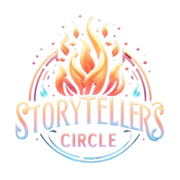Sure. I can do that. For context: I've been writing for years, role playing for longer than that. I've crafted stories that have gone on for years at a time, and stories that have ended in under a month. I've made masterpieces and total train wrecks both respectively. Here's some advice about a bunch of random stuff.
#1: You will never please everyone, don't even try. If someone doesn't like your idea, that's normal.
Let them leave.
#2: Stop beating yourself up for being imperfect. Just write some stuff. Seriously. It doesn't matter, it's all goofy as fuck. My best story is arguably either about a literal princess trope, or shapeshifters who live in a fog who spout Biblical verses at people. Fiction is inherently absurd, don't feel bad about it, don't give a shit what other people
might think of it. Just do it! Even if it's ultimately a train wreck in the end, you'll learn from it!
#3: Communicate to others around you. Groups of role players often become friends (or at least somewhat familiar with one another), and this is almost a necessity for any group hobby that goes into the long term. Communication is integral to getting what you want and explaining what you have in mind for the story.
#4: People will leave your story without saying a word. That doesn't make them bad people, nor does it necessarily mean you're bad at writing.
Be prepared for people to leave your role plays without a trace. Have a plan for that.
#5: It will probably take a few attempts to get your role play off the ground. This is fine. The best thing you can do is run a role play, watch it collapse, see who stuck through with you to the end, and
specifically contact those people and involve them in your next roleplay. I'm as successful as I am because of the people I surround myself with--that's the key to my success, above any individual talent on my part.
#6: Being a DM is a very social thing. If you're reclusive and don't want to talk to people a lot, either break out of that, or don't DM, because the role will make you miserable.
#7: Don't set out to "win" at combat all the time. Combat is a narrative tool, a means to an end and little beyond that. Combat opens up a plethora of other scenes you can do. Like...
- Injury, severe or minor, and the consequences thereof--such as treating the injury, recovery, and so forth.
- A moment of weakness or fragility for your character, should they lose but survive.
- Prolonging combat across multiple opponents or through a tense cat-and-mouse chase sequence, invoking feelings of tension, and fear.
And so on, and so on, and so on...
#8: In western structure, a plot mirrors character development in terms of pacing. The inciting incident is the call to arms for a character, the rising action is a character's journey, the low point in the plot is marked by the character falling into severe physical and/or psychological trauma, and the resolution is tied to the character rising above themselves to resolve the conflict in the plot.
The plot should inexorably be tied to some characters the moment they get involved, otherwise they will just be passengers to the DM's scene switches.
#9: Your RP doesn't have to last for years to be successful. If you derived fun from it, or emotional satisfaction, that's winning. A world can continue on through multiple stories, or individual characters can, or it might all end with one storyline. Any and all expressions of storytelling are valid.
#10: Have ideas. Present them. Don't ask others to come up with ideas for you, don't approach others with the classic prompt of "u wan sum rp?" Give people something to work with! Have characters, have plots, have worlds, or look at the designs of others and offer your input as a player!
Expect only to receive as much (or less) effort as you are willing to give, and if you are willing to give little to no effort beyond bugging people to role play,
expect nothing.
There you go. I guess. I'm gonna go back to drinking my tea now.
 I'm sure this could help those that are new to RPing.
I'm sure this could help those that are new to RPing.